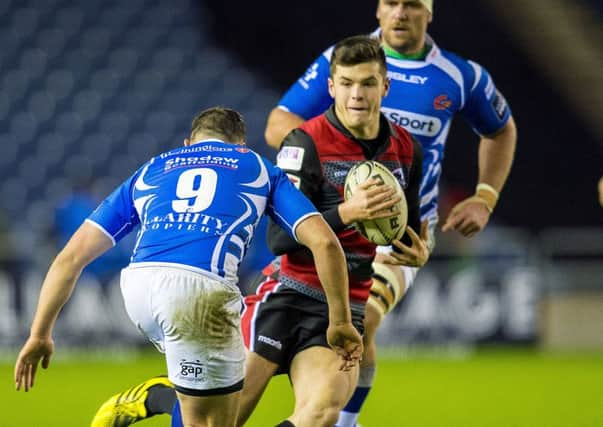Allan Massie: Pro12 progress good for Champions Cup balance


After two rounds, the Champions Cup tables are looking more like the old Heineken’s; that’s to say, more evenly balanced. Last season was dominated by English and French clubs, provoking misgivings that the Pro12 ones were no longer strong enough to compete. The fear was exaggerated. Leading Pro 12 clubs – notably Leinster, Glasgow and Ospreys – suffered from the demands of the World Cup, these three supplying far more members of their national squads than any English or French club. Consequently, their preparation, both physical and mental, suffered. Ospreys, indeed, though the strongest of the Welsh clubs, were so badly affected that they never recovered their league position sufficiently to qualify for this season’s Champions Cup. So far, things look more evenly matched. Saracens and Clermont-Auvergne are very strong, Wasps and Toulon strong, but none of the other English and French sides have seemed remarkable. Toulon, indeed, aren’t the side they were a couple of years ago. Leicester recovered from their hammering in Glasgow to edge a victory over Racing 92 in a scrappy game, thanks to an alertly-taken interception try. That said, only one club is likely to emerge from this pool, because there is no weak team likely to give ten points to a couple of the other three.
If Glasgow’s day was disappointing, Edinburgh’s was exhilarating. A severe critic might say that they didn’t actually create much, three or four of their six tries coming from Harlequins’ mistakes. But you have to take advantage of things like dropped passes or balls clumsily kicked out of a ruck; and Edinburgh did just that. It was especially pleasing that so many of their young Scottish players shone, notably Blair Kinghorn, Damien Hoyland, Chris Dean, Sean Kennedy and the two flankers, Magnus Bradbury and Hamish Watson. Kinghorn got the man-of-the-match award, but it might have gone to any of the others.
Advertisement
Hide AdAdvertisement
Hide AdThere’s some disagreement as to Kinghorn’s best position: full-back or stand-off? With Jason Tovey playing well at 10, and Duncan Weir recovering from injury, I imagine Duncan Hodge is happy to field Kinghorn at 15. Looking ahead, however, with an eye on the Scotland team, one wonders if he might be best played on the wing. With Finn Russell at 10 and Stuart Hogg at 15, there’s no likely vacancy in either position if both are fit and in form. But Kinghorn, with his size, pace and security under the high ball, might do for Scotland what George North does for Wales. Admittedly, we are not badly off for wings, with Tommy Seymour, Sean Maitland, Tim Visser and Damien Hoyland named in Vern Cotter’s squad for the autumn internationals. Yet if Kinghorn’s development continues at its present pace, it surely won’t be long before he is making a compelling case for selection, if not by Cotter this year, then by Gregor Townsend when he takes over.
Cotter has, of course, more immediate worries. Willem Nel will miss all three autumn internationals. Alasdair Dickinson has been named in the squad, but hasn’t yet played this season and was still missing from the Edinburgh match-day squad named for last night’s game with Zebre. It must be doubtful whether he will be match-fit when Australia come to Murrayfield in a fortnight. So the front-row which did so well for Scotland in the World Cup and Six Nations last season is posted missing. Young Zander Fagerson looks likely to start instead of Nel, with Moray Low, who has mostly been playing on the loose-head for Exeter, as back-up.
There are fewer set scrums in top-level rugby than there used to be; yet the importance of a secure scrum is no less than it has always been. Arguably, indeed, it is more important than ever, now that scrums are regarded as a means of winning a penalty rather than bringing the backs into play. Moreover, any penalty conceded in your own half is at least as likely to be kicked deep into touch in your 22, rather than aimed at goal. Our record at defending a maul from five-metre line-out is at least as bad as our record of failing to secure an opposition restart. So we are likely to be punished if there is any weakness in our set scrum.